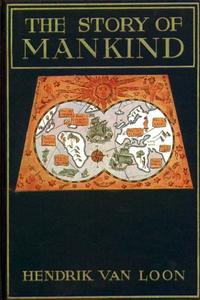Sunday, February 7, 2016
The Story of Mankind, Newbery Winner 1922
Here it is. The very first Newbery winner. I must say that, although not a real page turner, this book was much better than I expected it to be. I started reading it a few years back and the book is nicely illustrated but in order that I might just be done with it I have gone ahead and listened to the audio book. It was still a bit dry so I cranked up the speed and listened to it at 1.5X in order that I could just be done with the whole affair. So I think a simple overview ought to suffice.
The Good: The author does seem to put forth effort into being unbiased while looking at historical events. Though not always perfect at this he does note areas where he had to fight his personal bias in order to tell both sides of a story.
The Bad: For claiming to be the condensed story of mankind this book is awfully Eurocentric. The author having been raised in Europe and schooled in America this can hardly be surprising. Still he did spend probably 60 of the 67 chapters talking about events in Europe. One chapter is dedicated to Egypt, one to the Far East (only to discuss religion), two to the Middle East, and the others to the United States. The text also shows its age quite often when discussing People of Color and non-Judeo-Christian religions, on the same note the author is not unkind he simply uses phrases and cites ideas that were common one-hundred years ago but are no longer considered appropriate.
The Ugly: Actually, considering the age of the book does explain many of its shortcomings. Would I recommend it to children? No. But mostly because I just didn't find it all that enjoyable. It was a fair sight better than I expected, but by no means brilliant. I think the only reason this book survives at all today is its accomplishment of being the first book awarded with The John Newbery Medal.
Subscribe to:
Post Comments (Atom)

No comments:
Post a Comment